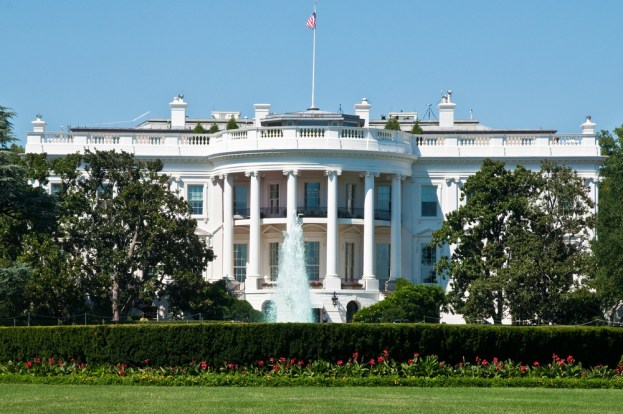
The White House today said it believes consumers should be legally able to unlock cell phones that are no longer on-contract with a wireless provider. This position comes in response to a successful “We the People” petition on WhiteHouse.gov, which asked the president to reverse the unlocking ban.
“The White House agrees with the 114,000+ of you who believe that consumers should be able to unlock their cell phones without risking criminal or other penalties,” wrote R. David Edelman, Obama’s Senior Advisor for Internet, Innovation, & Privacy. “In fact, we believe the same principle should also apply to tablets, which are increasingly similar to smart phones. And if you have paid for your mobile device, and aren’t bound by a service agreement or other obligation, you should be able to use it on another network.”
This, said Edelman, is simply “common sense.”
Legalizing device unlocking is “particularly important for secondhand or other mobile devices that you might buy or receive as a gift, and want to activate on the wireless network that meets your needs – even if it isn’t the one on which the device was first activated,” Edelman added. “All consumers deserve that flexibility.”
This is the opposite conclusion the Librarian of Congress came to last October when the office decided to reverse an exemption for cell phone unlocking under the Digital Millennium Copyright Act (DMCA). Unlocking alters so-called digital locks installed by wireless carriers, to prevent consumers from using their devices on other networks. The DMCA prohibits disabling digital locks, and the wireless industry was able to convince the Librarian that unlocking no longer deserved a DMCA exemption.
Unlocking officially became illegal at the end of January. While experts believe individuals will likely not be prosecuted for unlocking their devices for personal use, unlocking potentially carries severe punishment – a fine of up to $500,000, five years in prison, or both, for a first time offense. The penalties double for repeat offenders.
The White House says it hopes to change this through the passage of “narrow legislative fixes in the telecommunications space,” or through action by the Federal Communications Commission, which may have some authority over this area. FCC Chairman Julius Genachowski backed the White House’s stance, saying in a statement (PDF) that the criminality of cell phone unlocking “raises serious competition and innovation concerns, and for wireless consumers, it doesn’t pass the common sense test.”
Genachowski added that the FCC is investigating “whether the agency, wireless providers, or others should take action to preserve consumers’ ability to unlock their mobile phones.” He also urged Congress to “take a close look and consider a legislative solution.”
The petition that elicited the White House response was launched on January 24 by San Francisco entrepreneur Sina Khanifar, who once faced legal action from Motorola after launching a business, Cell-Unlock.com, through which he sold software that allowed people to unlock their devices.
In an email with Digital Trends, Khanifar said he is “really glad” to see the White House’s response “on an issue that’s clearly very important to people.”
“This is a big victory for consumers, and I’m glad to have played a part in it,” said Khanifar. “A lot of people reacted skeptically when I originally started the petition, with lots of comments to the effect of ‘petitions don’t do anything.’ The optimist in me is really glad to have proved them wrong. The White House just showed that they really do listen, and that they’re willing to take action.”
Khanifar added that, while this response is a good first step, “the real culprit” is the 1201 provision of the DMCA, which makes it illegal to circumvent any digital locks, including DRM on music and movie files. “I discussed with the White House the potential of pushing to have that provision amended or removed, and they want to continue the discussion,” he said.
Tomorrow, Khanifar, the Electronic Frontier Foundation, Reddit, the Mozilla Foundation, and others plan to launch a new campaign to push Congress to change S1201 of the DMCA, Khanifar said. We’ll have more information on this as it comes in.
Updated with additional information from Khanifar.
(Image via dhorsey/Shutterstock)


